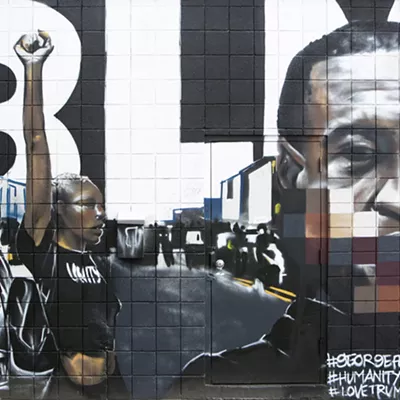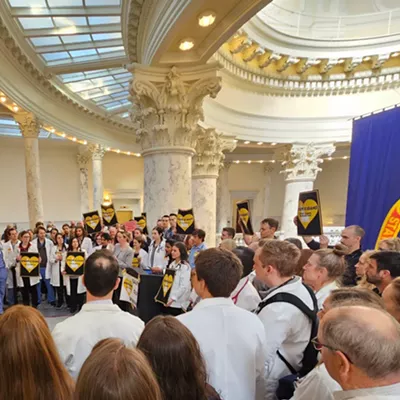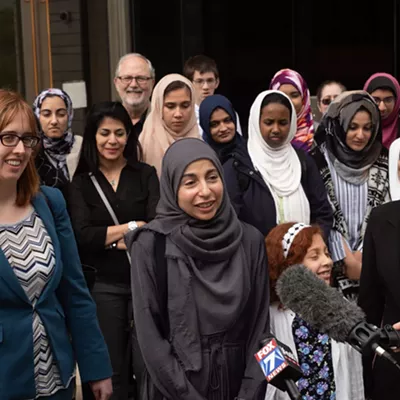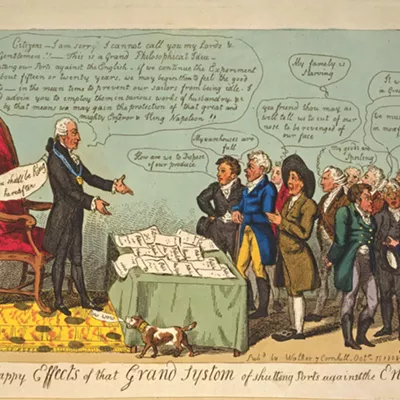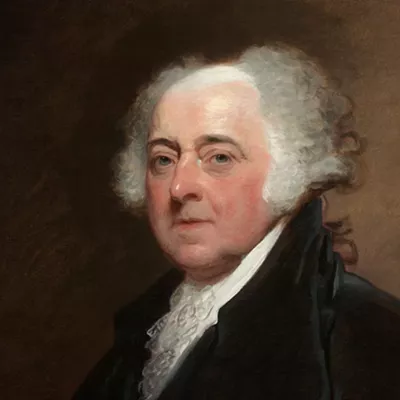Simmering student protests against the ongoing war between Israel and Hamas have exploded across U.S. campuses in the past couple of weeks. Hamas terrorists launched a massive wave of attacks against Israeli civilians on October 7, 2023. The right-wing government of Benjamin Netanyahu responded with an expansive military operation in Gaza, which even Israel's closest allies have criticized for causing numerous Palestinian civilian deaths and injuries.
Students at campuses from Columbia University in New York City to UW in Seattle set up encampments and organized protests to pressure university administrators to divest their sizable endowments of financial investments in Israeli corporations and Western arms manufacturers — including Boeing. Some university administrators didn't hesitate to call in the cops.
Over the weekend, police officers broke up the protest encampment at the University of Virginia, which local authorities in Charlottesville had declared an "unlawful assembly." Thomas Jefferson founded the university in 1819 as an "academical village," in which faculty and students would live and work together in the pursuit of knowledge.
What would one of America's most famous revolutionaries make of the Israel-Hamas War protests on the grounds of "Mr. Jefferson's University"?
Jefferson was often painted by his political opponents as a wide-eyed radical. During the 1790s, the Federalist Party — home to John Adams and Alexander Hamilton — depicted Jefferson as an American Jacobin, a fellow-traveler with the radical political movement driving the violent excesses of the French Revolution.
The Federalists were not totally off base. In an infamous letter to William Short from 1793, Jefferson defended the execution of King Louis XVI and mass killings in France, saying "the liberty of the whole earth was depending on the issue." He went on to declare that "I would have seen half the earth desolated. Were there but an Adam & an Eve left in every country, & left free, it would be better than it is now." Uncompromising words.
"...it is always easier to support causes that you believe in than it is to tolerate political action pushing those that you don't."
Thirty years later, Jefferson busied himself in his retirement overseeing the construction of the University of Virginia, which welcomed its first entering class in 1825. The aging Founder hoped to build an institution in the South to educate virtuous citizens who would go on to lead their states and nation.
Instead, Jefferson discovered that UVA students were an unruly bunch. A "riot" took place in October 1825, when a student threw a bottle of urine through the window of a professor's home, resulting in a brawl between students and faculty. The 82-year-old Jefferson broke down crying when he confronted the student body after the riot. A fervent revolutionary, who had not flinched when some of his friends went to the guillotine, was now sobbing after fisticuffs between students and faculty.
The Virginia rioters may not have been fighting for the future of mankind in the same vein as French Jacobins, but the students were protesting the strict regime that Jefferson had imposed on them. Classes began at 5:30 am, curfew was 9 pm, and school was in session almost all year-round. Had Jefferson just gotten more conservative in his old age?
Maybe.
If there's a lesson to learn from Jefferson's imperfect radicalism, it is that it is always easier to support causes that you believe in than it is to tolerate political action pushing those that you don't. In 1793, Jefferson was a fervent supporter of the radical French Revolution because he believed that it was a corollary to the American Revolution of 1776, which promised to spread freedom and liberty around the globe. In 1826, Jefferson saw his beloved retirement plans to build a new institution of higher learning for the betterment of mankind were under threat from a bunch of unruly kids.
Before he was reduced to tears, Jefferson described the mission of his university as pursuing the "illimitable freedom of the human mind to explore and to expose every subject susceptible of its contemplation."
The campus protests of today concern a highly emotive subject that has a very long and difficult history. I hope that no one would support political violence in our current moment in the way that Jefferson did in 1793. But at the same time, it is important that we recognize the right of people to protest. And if there is anywhere where this freedom should be exercised, it is on college campuses. ♦
Lawrence B.A. Hatter is an award-winning author and associate professor of early American history at Washington State University. These views are his own and do not reflect those of WSU.





